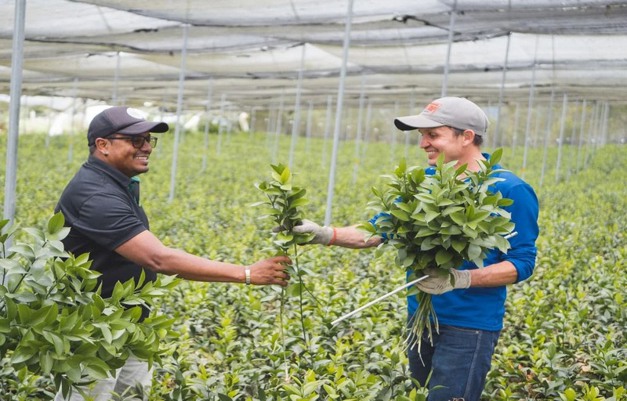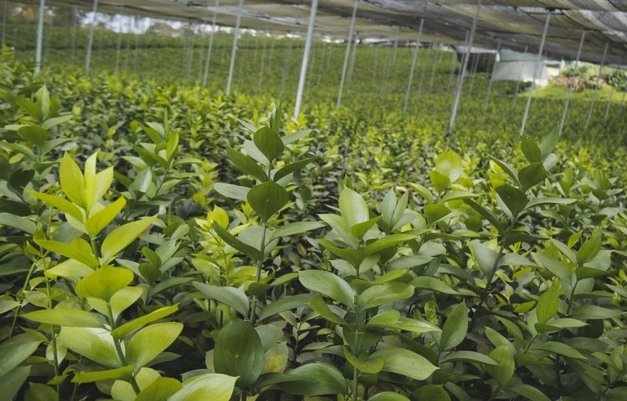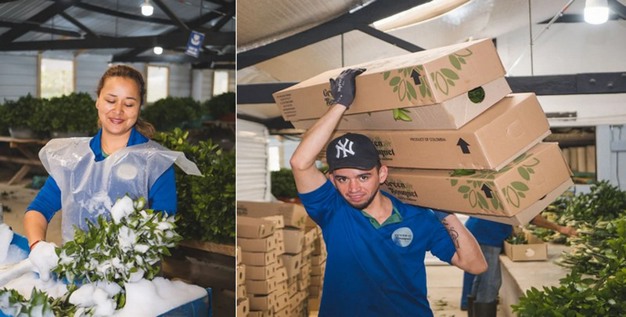

Felipe Saldarriaga at Proflora 2023 in Bogota, Colombia.
Wait and stay in business
“At the moment, our only objective is to be current, stay in business, and wait for better times, the floral industry can be so sensible for uncontrollable movements that some variables are out of reach for us, such as currency prices, etc. I think the flower industry is a sensible business, you have to be careful about what your strategy is and what you would like to accomplish in the long term. This business demands so much investment, so you have to have a strategy for the long term for sure, the growing business is hard, you are in a continuous battle with the weather, the use of pesticides is restricted even on a non-edible product, certifications are very expensive, and demanding, etc. At the end is a beautiful business that will last forever in a world full of lack of feelings between humans, flowers will always give you a breath of peace and reconciliation.”
Fortunately, expectations for 2024 are high, but there are several challenges growers are dealing with. “At the moment, in Colombia, our biggest challenge is to keep the cost of production controlled. After the pandemic and the big inflation worldwide, the cost of production increased more than 30%, so our margin has dropped almost 15% or more, we depend on big volumes to keep our margin safe. So, our price strategy is another challenge. “Many farms that are growing greens have their price standard during all year, we have to try to get better prices on high seasons and focus on the big volumes during the high seasons.“ At the same time, we are working on improving sea transport and dealing with unstable politics and other variables that push for more costs.
For more information:
Felipe Saldarriaga
Green Bouquet
Email: [email protected]
www.greenbouquet.co
Back to normal after the pandemic
The pandemic was a bomb for the flower industry, where demand went through the roof. Also, for Green Bouquet, demand was high, enabling them to grow in production, he explains. However, the demand seems to be at a point of stabilization. The world is coming back to normal behavior of buying flowers and the rest of products and services. However, this summer was extremely slow, and not only for the Israeli Ruscus, we heard it from more growers of other crops too. We now see that the market is on the watch on what is going to happen, and at the same time, there is more production coming in.”
“The Israeli Ruscus may be an old-fashioned foliage, but it is in great demand during the high seasons like Valentine’s Day and Mother’s Day. However, when the summer begins, demand drops, and particularly this summer, demand is very slow. After the pandemic, it seems that the market is back to pre-covid times.” This is explained by Felipe Saldarriaga, CEO of Green Bouquet, a Colombian grower of Israeli Ruscus. Over the last years, they increased production significantly but decided to wait and see how the market will develop in 2024 and 2025. “It has been a tough summer, combined with the inflation, increased costs, and unstable, it is better to wait, and we notice that more growers are doing that.”


Ruscus, a popular foliage
According to Saldarriaga, Israeli Ruscus is a popular foliage. “When we started in 2005, the market asked for other greens and more novelties, but in the end, the Israeli Ruscus was and is a strong foliage which bouquet makers always have in their recipes for high seasons.” The demand increased and boosted particularly during the pandemic, enabling them to grow in acreage. “We increased in production, and currently, we have a total production area of 10 hectares distributed over 3 farms, becoming one of the largest producers of this product. But still, for the high seasons, it is impossible to meet the demand.” They ship their product to many parts of the world, including Australia, Asia, Canada, the USA, Qatar, and the United Arab Emirates. “